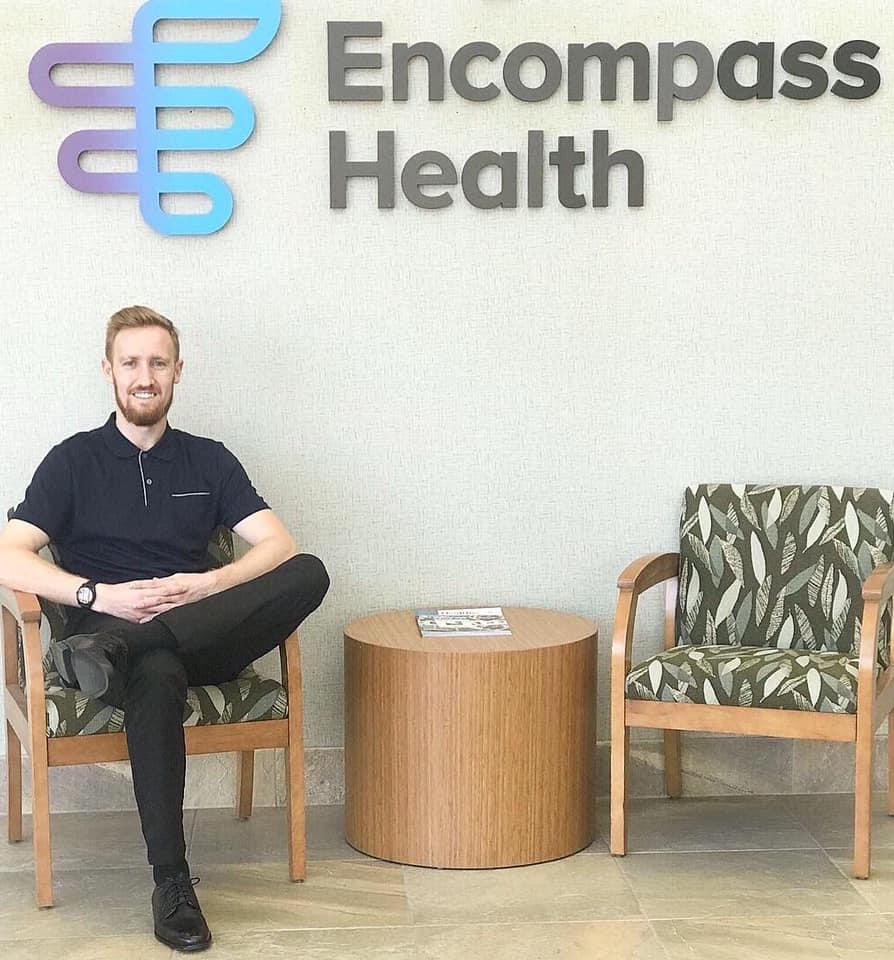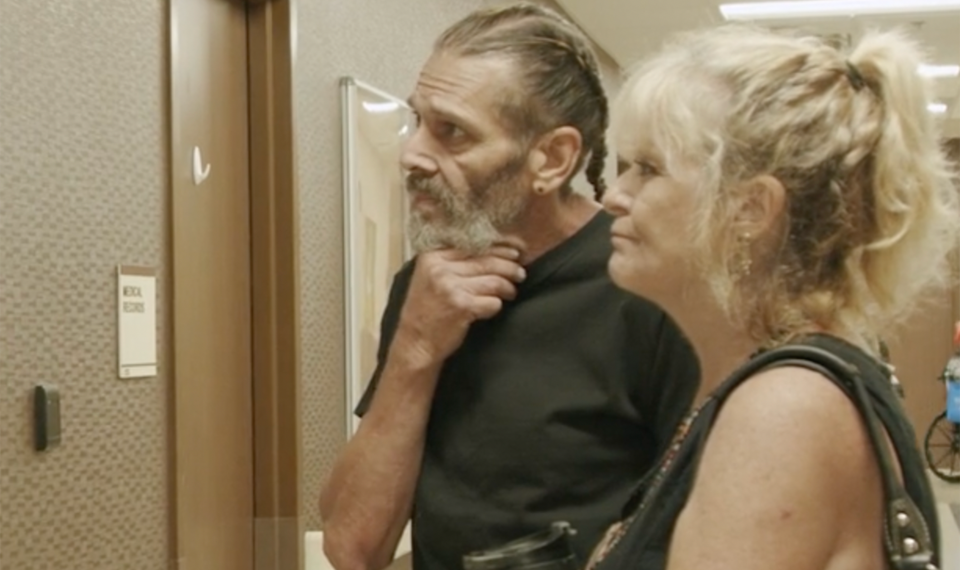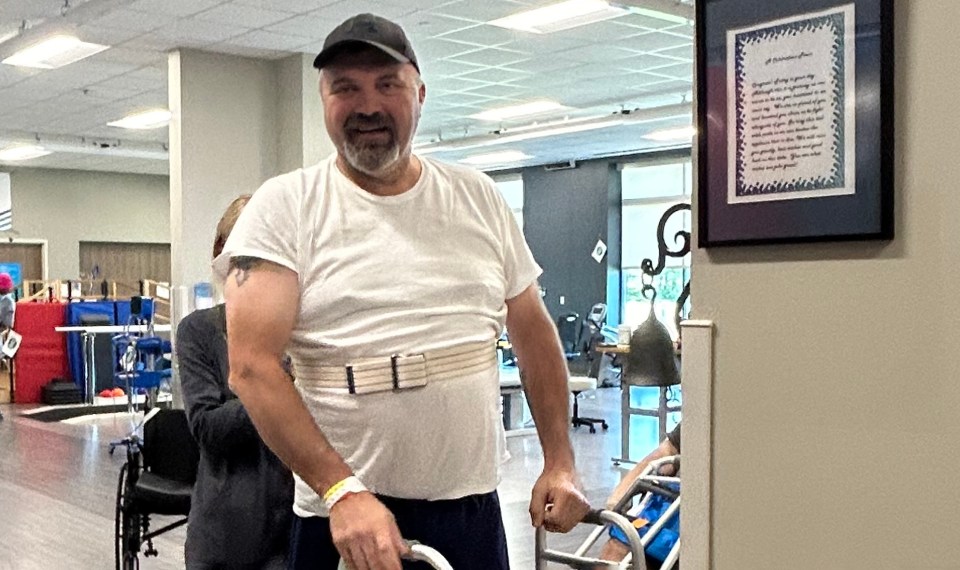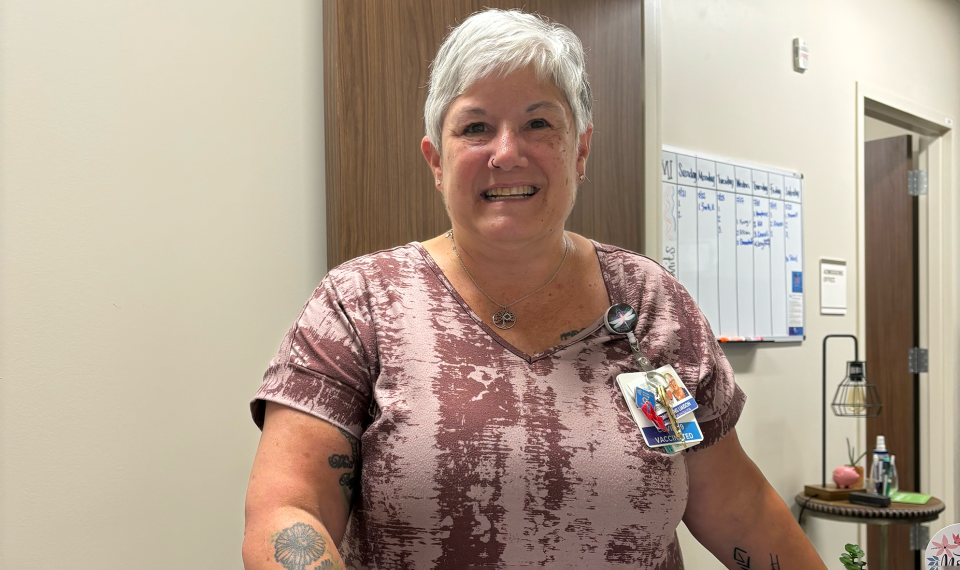An 80-foot fall from a cliff changed the course of Declan Fulton’s life. Once an aspiring professional soccer player, Fulton found a new purpose after inpatient rehabilitation at Encompass Health Rehabilitation Institute of Tucson.
The Accident
In 2010, 19-year-old Fulton was doing what he loved. He was playing soccer on a scholarship at Pima Community College with his sights set on going pro.
Everything changed when Fulton and his friends went on a hike at Tanque Verde Falls. “I chased the water down to where there was a huge waterfall, and I climbed down 10-15 feet to sit under it. When I was climbing back up, I slipped,” Fulton recalled. “I knew that I was going to fall straight downwards, so I had to kind of kick myself off backwards to try and get some trajectory, which ended up saving my life. But I still smashed some ledges on the way down, which broke me in half pretty much.”
As his friends watched in horror, Fulton was rescued from the water and airlifted to the hospital. He suffered a traumatic brain injury, shattered his pelvis, broke his back, fractured multiple bones in his face/skull and punctured a lung.
Thankfully, Fulton pulled through and after several surgeries, he was cleared to start the next step in his recovery — inpatient rehabilitation at Encompass Health Rehabilitation Institute of Tucson.

Coming to Terms with Reality
When Fulton was admitted, he required a wheelchair and was dependent on others to care for his daily needs. He also had short-term memory loss and trouble focusing on tasks. “I was on strict non-weightbearing orders for four months. Encompass Health’s job was to teach me independence at a wheelchair level,” Fulton said. But he wanted so much more.
Fulton was determined to get back on the pitch and play soccer again. His coaches assured him that if he recovered and was cleared by his doctors to play, he could get back on the team roster. However, Fulton struggled to get motivated. His therapists helped turn things around.
“There were a lot of times when I was agitated and didn’t want to do things. But my therapists talked to me about the importance of participation and were very encouraging. There was a lot of empathy,” he said. As it would turn out, those connections with his therapists had an enduring impact on Fulton.
Finding a New Purpose
Fully committed to his recovery, Fulton’s condition improved drastically. Working with his therapists for three hours a day, five days a week, he went from requiring assistance for all daily tasks to being self-reliant using his wheelchair. “By the end of my stay, I was flying around the hospital!” After five weeks, Fulton was discharged and returned home. Thanks to the improvements he made at Encompass Health, he was cleared to begin weight-bearing therapy in an outpatient setting, where he regained his previous level of function.
A year after his accident, he rejoined his soccer team and played for a national title.
Although he was back to athletics, it became clear to Fulton that he wasn’t meant to be a professional soccer player. He instead wanted to pursue a career with Encompass Health working in physical therapy, so he could help others get their lives back after a serious illness or injury. “When I looked back at my accident and recovery, outpatient was cool and important and everything, but what made the biggest impact on me was Encompass Health. I wanted to get other people back on that field or just kind of give back some of the care I’ve received.”
The Next Chapter
Fulton attended school to become a physical therapy assistant and was hired by Encompass Health Rehabilitation Hospital of East Valley after graduation about four years ago, making his dream of helping others a reality. He also became a certified clinical instructor, educating physical therapy assistant students during their clinical training at his hospital.
Despite his career change, Fulton didn’t hang up his cleats for good. He plays soccer several times a week in a recreational league.
As a physical therapy assistant, Fulton supports nearly every aspect of patients’ therapy, from ensuring they get to sessions safely to educating patients’ families ahead of discharge. It’s a rewarding job that allows him to use his experiences to inspire others, he said. “I get a lot of patients who think their life is over. I understand what they are going through and try to talk to them with a lot of empathy, because it’s rewarding. When a patient stands up for the first time, or can walk 10 feet, or use a walker for the first time or do a lap around the gym, it’s emotional.”
The content of this site is for informational purposes only and should not be taken as professional medical advice. Always seek the advice of your physician or other qualified healthcare provider with any questions you may have regarding any medical conditions or treatments.



